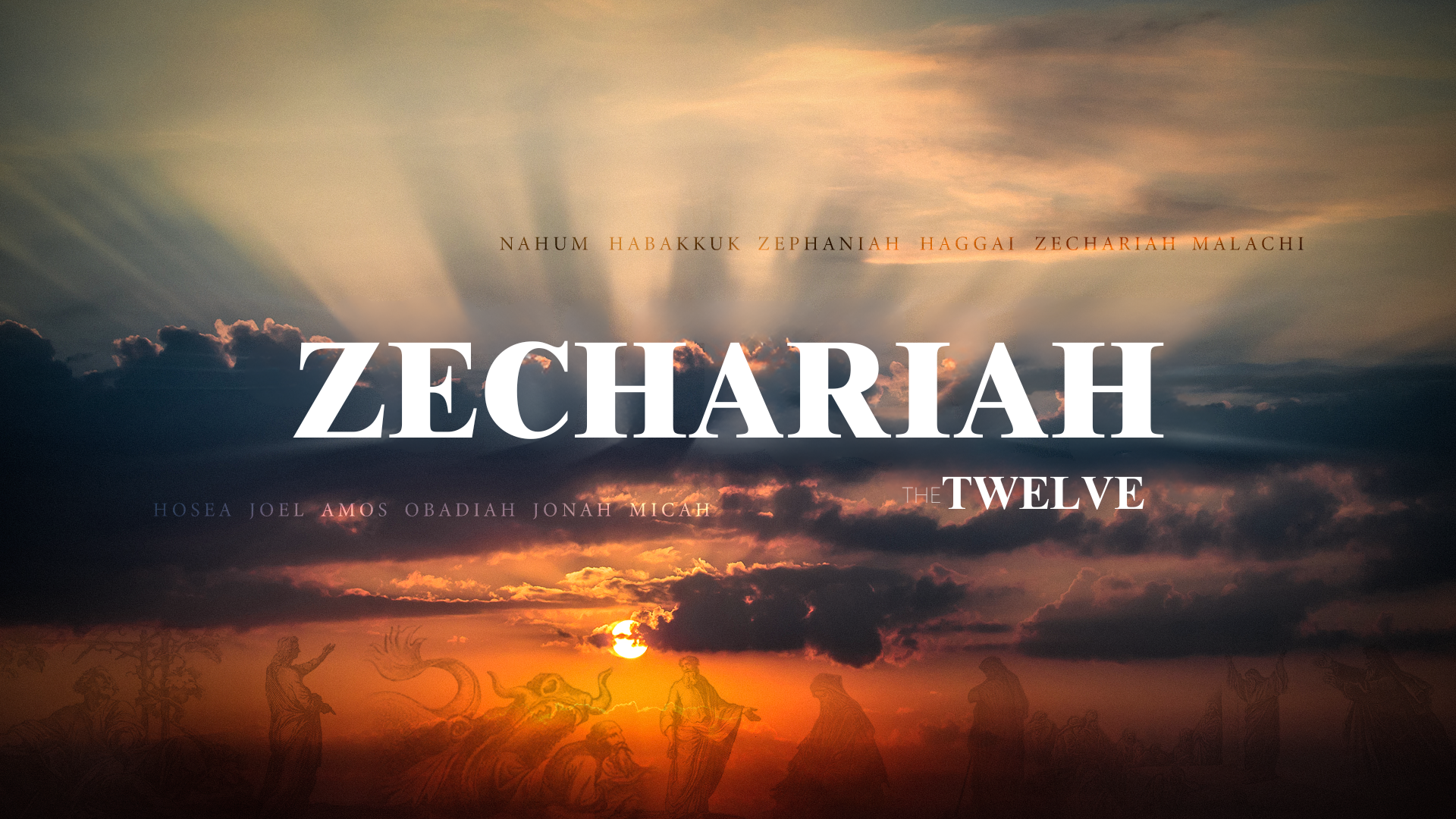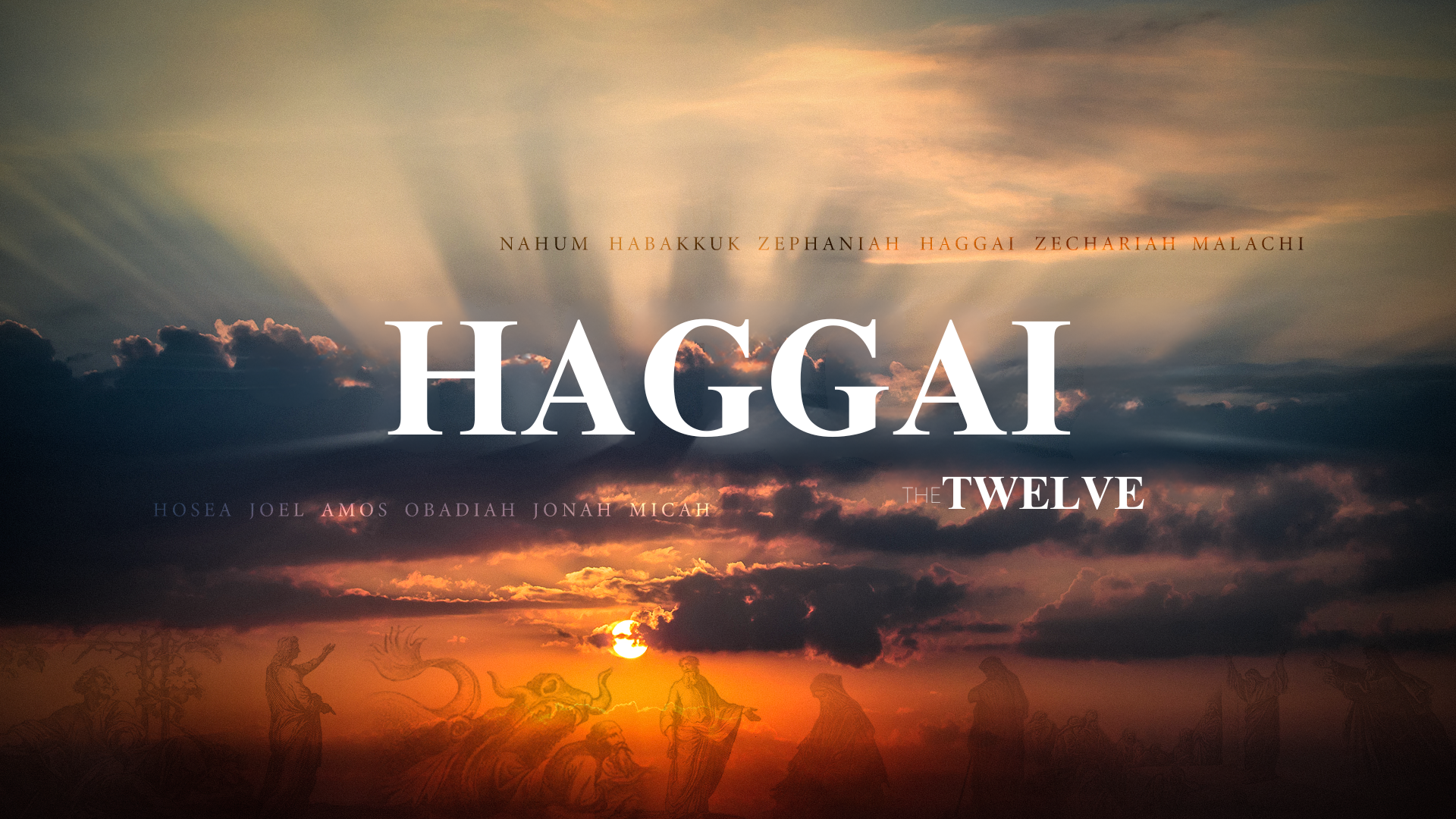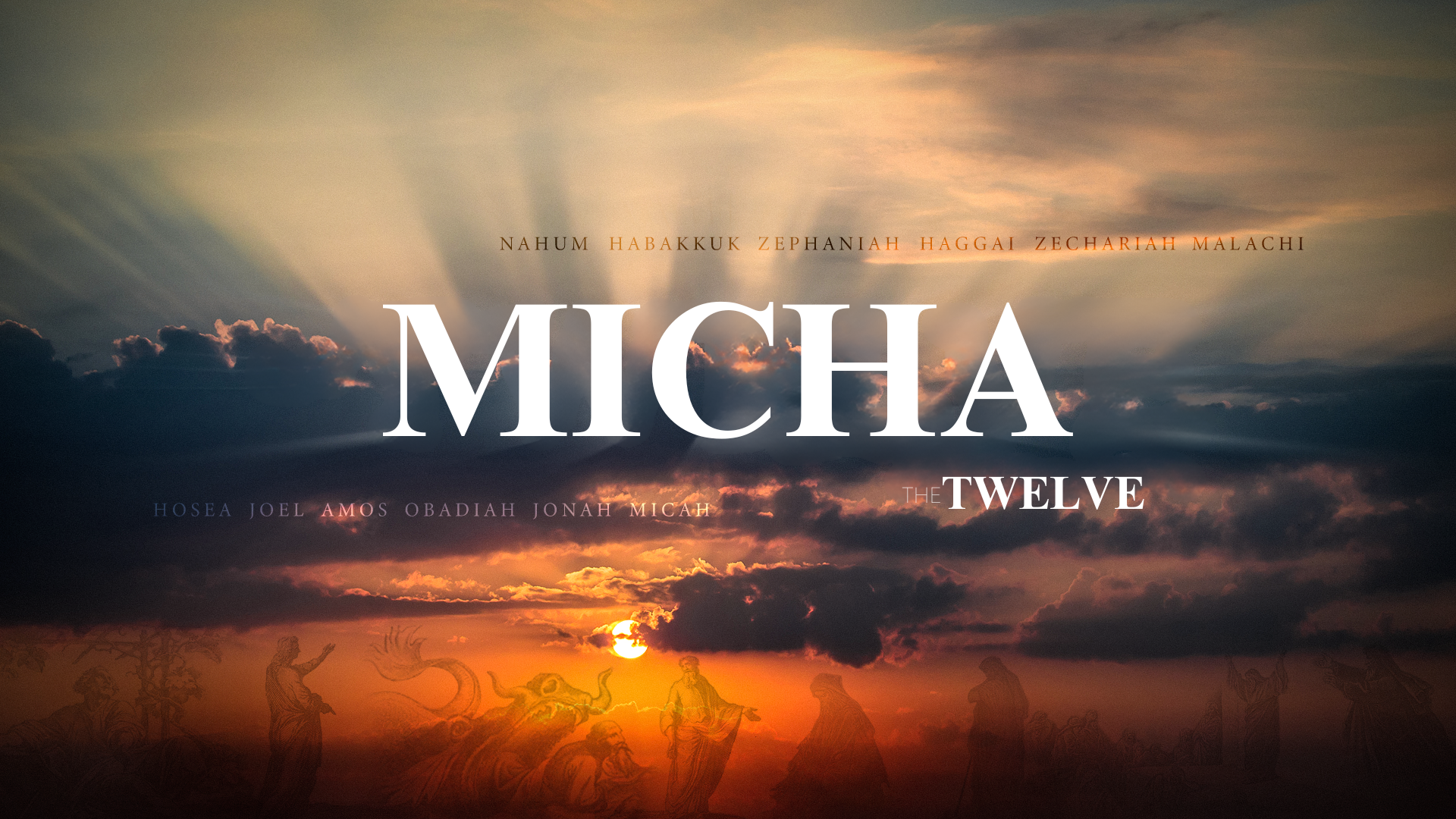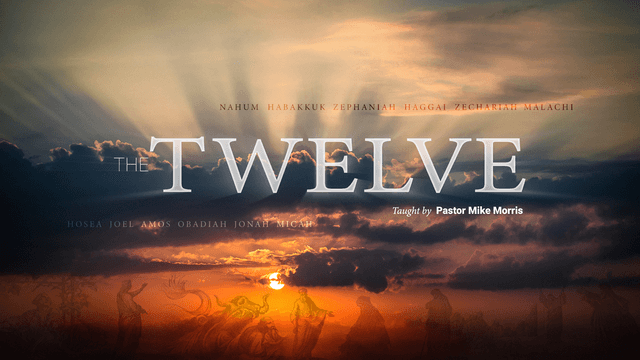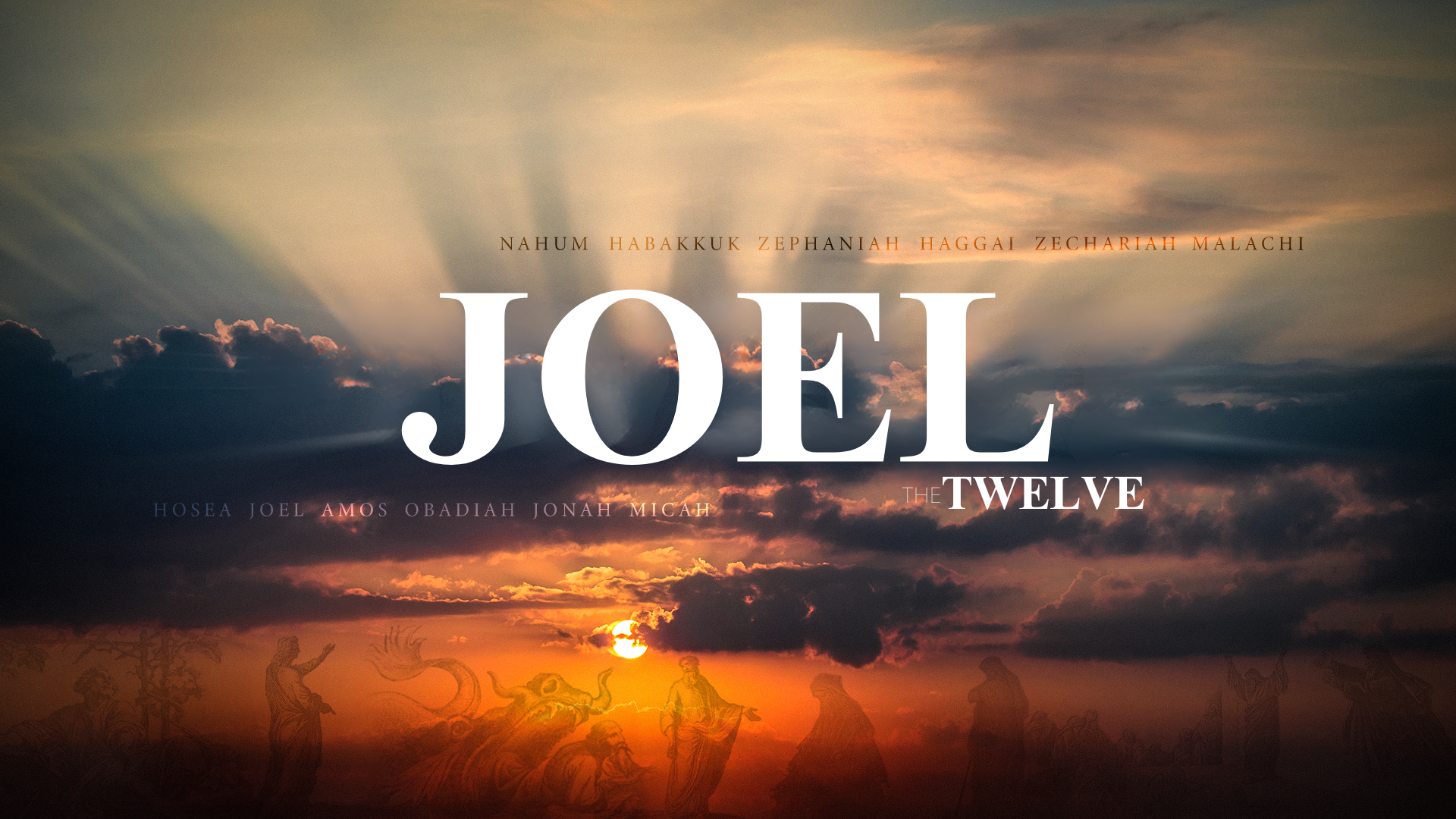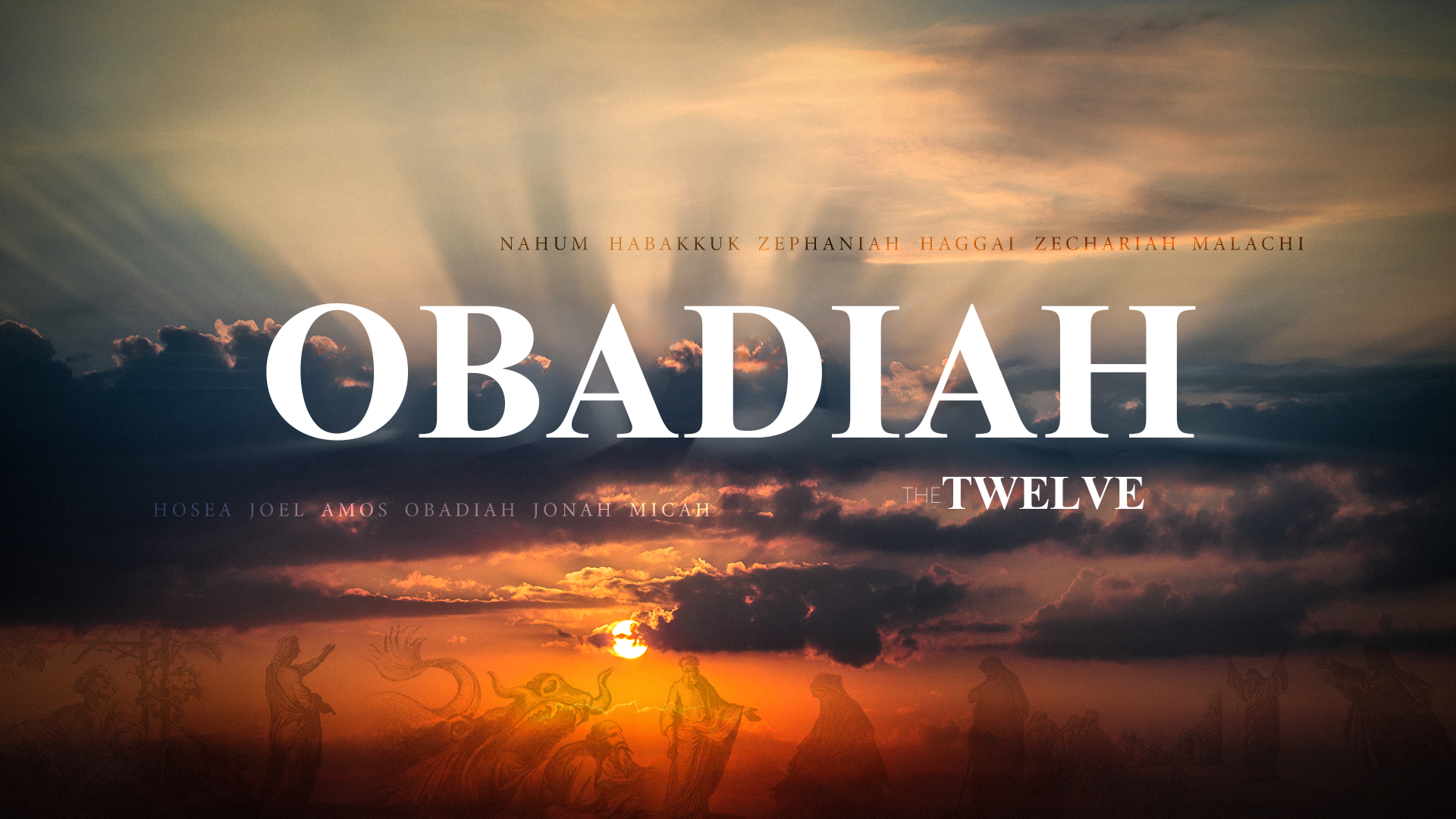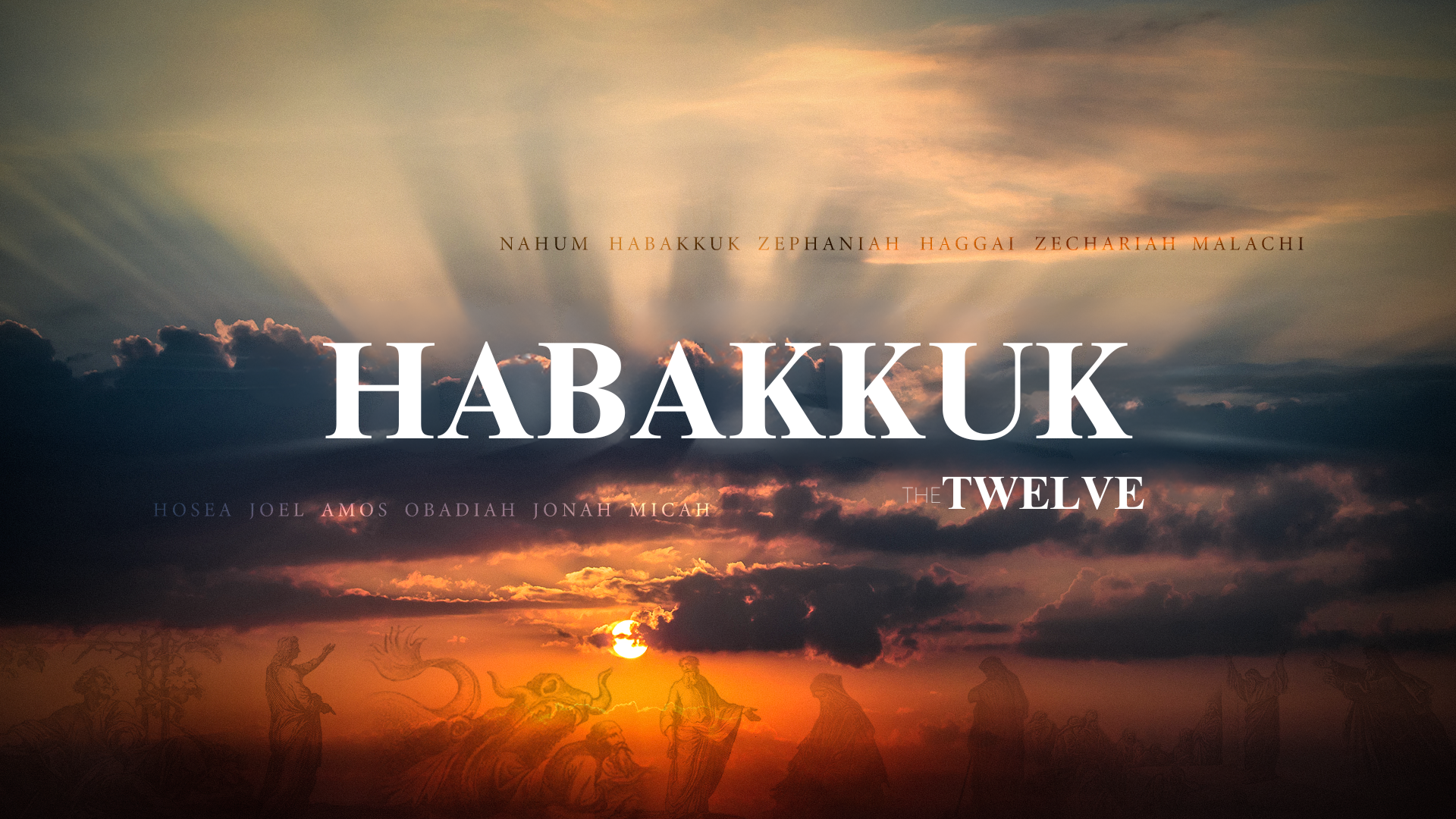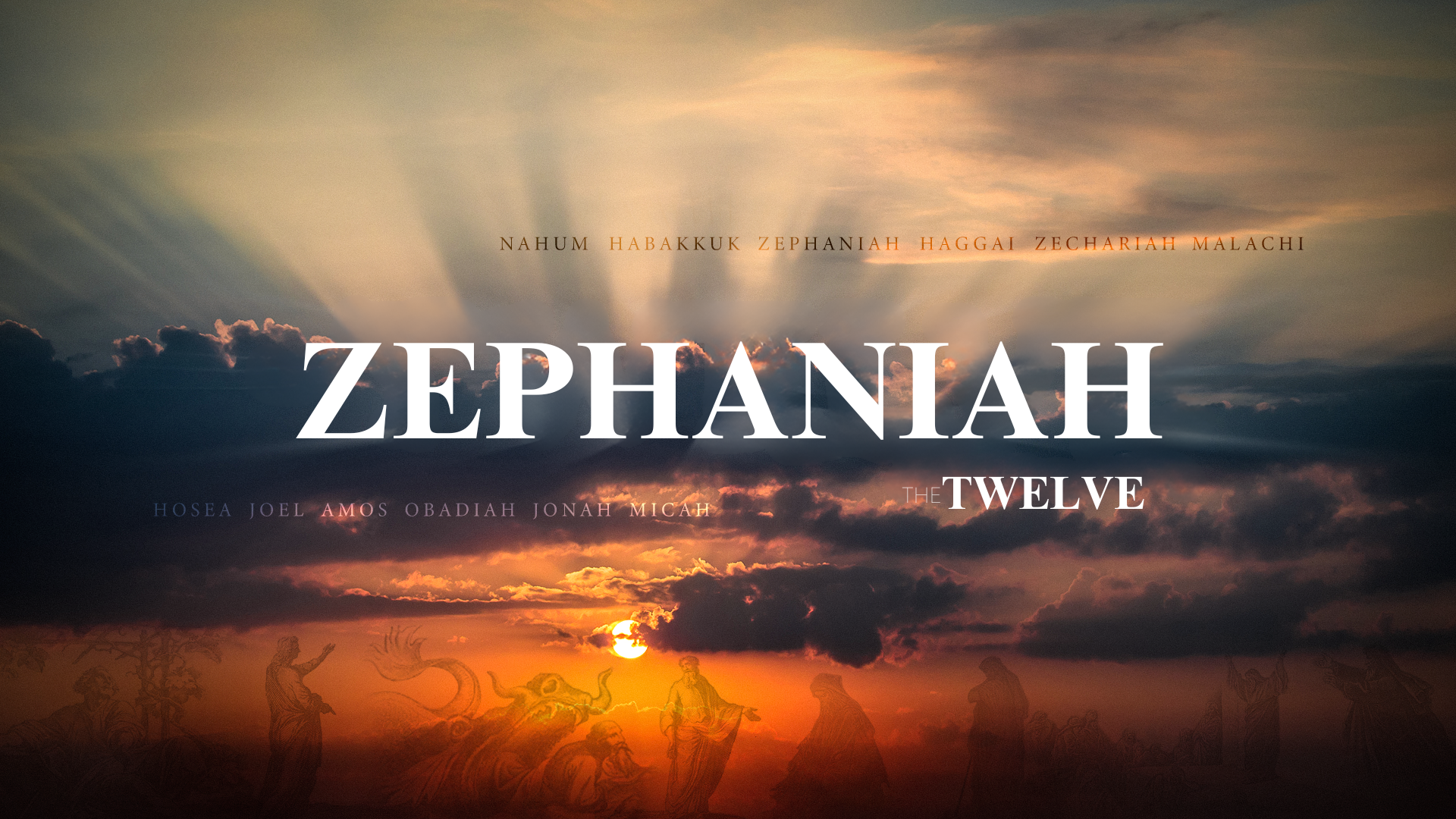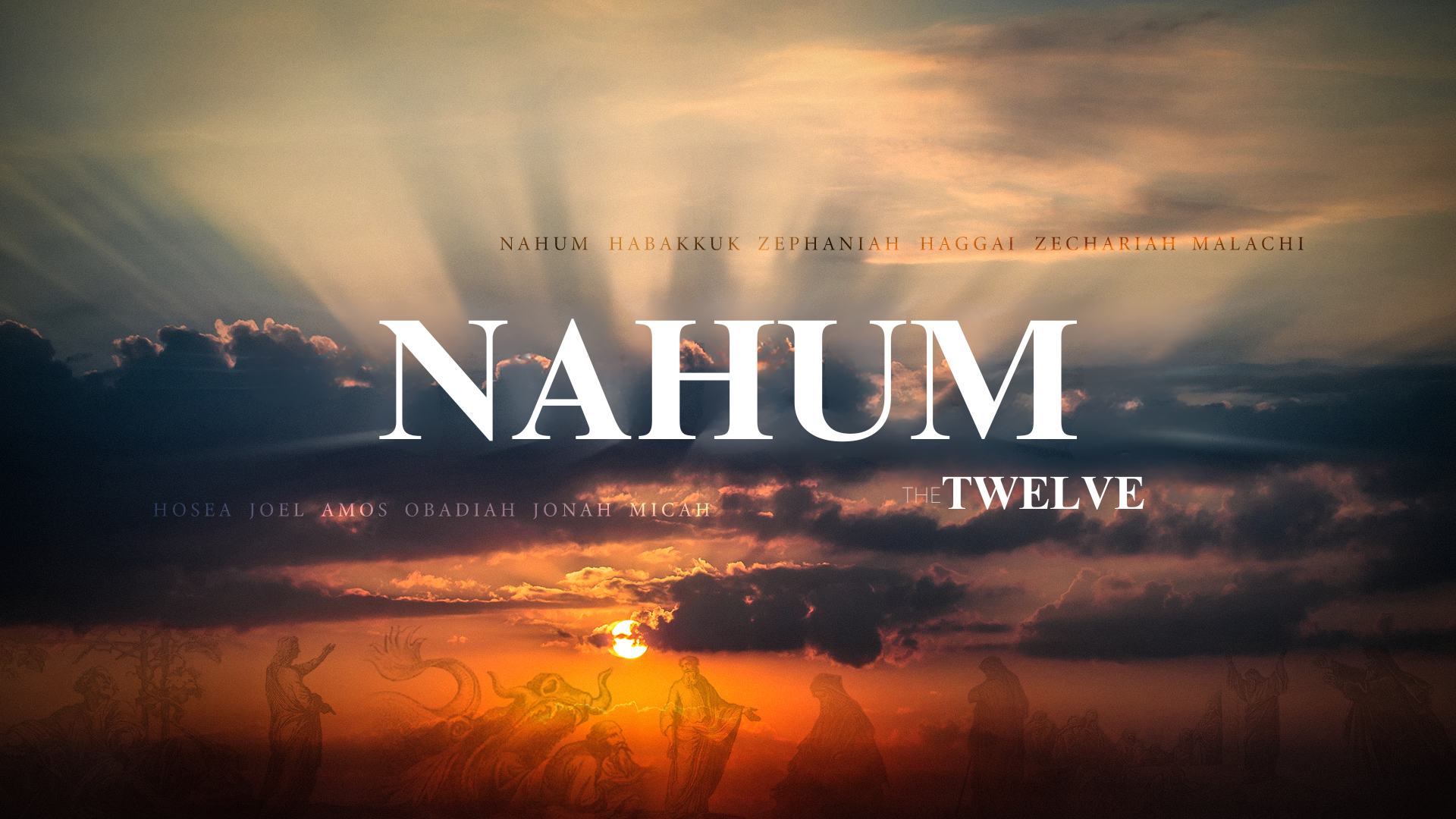MANUSCRIPT
Today we conclude our study of the book of Habakkuk...
To see the historical setting, let’s look at the timelines of the two Israelite nations in the time of the divided monarchy, Israel in the north and Judah in the south...
The voices of the prophets ceased in the north as the Assyrians crushed Israel, taking them into captivity in 722 BC, an exile from which they never returned...
Judah endured another 135 years before falling to the Babylonians, the nation which conquered the Assyrians...our studies of Jonah through Habakkuk are available on our website, vbvf.org, under the “Old Testament”...look for the series entitled “The Twelve”
Let’s quickly review some key elements that will help us set this book in context...all we know about the author is that a prophet named Habakkuk wrote the book...based on the internal evidence of the book – we can place the date between 608 and 598 BC...this date range means Habakkuk was a contemporary of Nahum, Zephaniah, and Jeremiah...based on the date and content of the book, we know that Habakkuk lived and prophesied during a time of national and religious decline, watching the descent of his people into complete sinful apostasy...the book is quite different from other biblical books because rather than speaking FROM God TO the people, like other prophets, Habakkuk speaks a message FROM his own heart and mind TO God...thematically, in his commentary Faith Amid the Ruins Heath Thomas says that The center and focus of the book of Habakkuk is living by faith in the light of the faithfulness of God. ....that’s a good summary...the book is written in three passages...we’ve covered Habakkuk’s first complaint and God’s response in 1.1-11, and his second complaint and God’s response in 1.12-2.20, so let’s review what we’ve learned so far...
We learned that God is aware of all that happens in His creation, and as the righteous Judge, He will surely deal with sin...
We learned that God is active in our world...
We learned that God answers the prayers of His people...He is not offended by our honest questions, or even our doubts, but let us not hold on to our doubts in our hearts and minds...instead, let us rest in faith and trust before our God...
We learned that faith trusts and asks questions at the same time...
We learned that faith guides our lives in Christ...
We learned that faith knows God is in charge...
Now, put yourself in Habakkuk’s sandals for a minute and consider this...when you asked God why He is indifferent to sin and suffering, and doesn’t seem to care about what is happening in your world, He says that He is aware, and He is about to bring the empire of Babylon upon Judah to crush Jerusalem and take the nation into exile...then when you lament God’s use of the wicked to discipline those more righteous than they, He tells you that you are to wait for Him to act, as He surely will, and that in the meantime you are to live by faith, but that God will eventually judge the wicked Babylonians for their part in Judah’s destruction...with all that on your heart and mind, we come to chapter 3...
Keep all of this in mind as we look at the text for today, just as Habakkuk himself would have...now, let me preface this just a bit...chapter 3 is different from the first two chapters...the first two were a dialogue between Habakkuk and God, a lament followed by a response...chapter 3 is a monologue in the form of a song...I have come to think of Habakkuk 3 as Psalm 151...there are 6 occurrences of musical notations in 19 verses, and it’s nearly pure poetry, especially the large middle section...this is a beautiful prayer that would have been sung, more than spoken, to God...it’s one of the most heartfelt and genuine statements of faith in God in the entire Scripture...Habakkuk prays for mercy, reviews God’s work in the past, then declares his faith in the Lord...all of us need to see an example like this of faith in difficult circumstances, for both encouragement and inspiration...let’s see how we are to respond when everything falls apart...
In Wrath Remember Mercy (3.1-2)
Habakkuk begins with a preface of his own...
A prayer of Habakkuk the prophet, according to Shigionoth.
2 O Lord, I have heard the report of you,
and your work, O Lord, do I fear.
In the midst of the years revive it;
in the midst of the years make it known;
in wrath remember mercy.
Habakkuk marks what follows as a prayer in a musical style...this is the plural form of the Hebrew word which in the singular is ‘shiggaion’ – there’s no agreement on exactly what it means, but the most likely meaning in this context is “according to the style of a lament or dirge” – which seems to fit pretty well...
The prayer begins in verse 2...this praying prophet addresses God once more...throughout the years encompassed by this book, he has learned much of the Person and ways of Yahweh...and what he has learned has led him to an awe-filled reverence, the true meaning of the word “fear” in this context...Habakkuk knew of God’s work in the northern kingdom of Israel, His judgment of that nation, and their disappearance into the farthest reaches of the Assyrian Empire...now God has told him that He will do the same to Judah, with Babylon taking God’s people into exile far to the east. Habakkuk echoes the words of Job after Job has been confronted by the presence of God... Job 42.5... I had heard of you by the hearing of the ear, but now my eye sees you; ...Habakkuk is about to see first-hand what God will do, and his heart trembles at the power and purposes of Yahweh...
He pleads with God in verse 3 for revival and renewal… the Complete Jewish Bible translates this passage well:
Bring your work to life in our own age,
make it known in our own time;
but in anger, remember compassion.
The prophet is about to recount God’s work in history – that’s the center section of the chapter, verses 3 through 15 – but before he does, here he simply begs God to care for His people, to bring them to life, not death...to make God’s Name famous in the prophet’s day as God had done in the days of old, in the creation, in the exodus, and in the conquest of the Promised Land...Habakkuk knows well the depths of sin and depravity into which Judah had descended...listen to his first lament in chapter 1, verses 2 through 4…
2 O Lord, how long shall I cry for help,
and you will not hear?
Or cry to you “Violence!”
and you will not save?
3 Why do you make me see iniquity,
and why do you idly look at wrong?
Destruction and violence are before me;
strife and contention arise.
4 So the law is paralyzed,
and justice never goes forth.
For the wicked surround the righteous;
so justice goes forth perverted.
That’s the state of Judah as Habakkuk speaks with the Most High God...Jerusalem is filled with violence, iniquity, wrongdoing, destruction, strife, contention, injustice, and wickedness...spiritually, Judah was as good as dead...Habakkuk’s prayer is for God to revive them, to breathe spiritual life and vitality back into them as He had once done...Habakkuk cries out to see God’s work in his day, his age, as the first Israelites did as they left Egypt under the strong Hand of God...he wants the people of Judah to know Yahweh as their ancestors once did…
And most of all, Habakkuk knows the greatest need of Judah could be said in one word: mercy...there was no question that Judah was guilty of heinous sin...they deserved the unmitigated judgment of God...their only hope was God’s mercy, His compassionate decision to not judge them solely according to His righteousness, but instead render mercy instead...
No doubt Habakkuk knew well the passage from Exodus 34.6-7...God responds to Moses’s request to “see Your glory” with a stunning self-revelation...God says this of Himself…
6 The Lord passed before him and proclaimed, “The Lord, the Lord, a God merciful and gracious, slow to anger, and abounding in steadfast love and faithfulness, 7 keeping steadfast love for thousands, forgiving iniquity and transgression and sin, but who will by no means clear the guilty, visiting the iniquity of the fathers on the children and the children's children, to the third and the fourth generation.”
The first word God used to describe Himself when Moses asked to see “His glory” was “merciful” ...have no doubt, our God is a merciful God...and that was Habakkuk’s plea...in Your wrath and righteous judgment, O God, please also remember Your character as a God of mercy...
So the first thing we do when everything falls apart...pray for mercy
The Works of God (3.3-15)
Now Habakkuk rehearses the acts of God in the life of Israel...it is a long poetic discourse, which I’ll interrupt to identify a few key points along the way...verses 3 through 7 describe an appearing of God, called a theophany...verse 8 through 15 describe God as the Divine Warrior...this section is a review of the faithful works of God for His people… that’s the second thing to do when everything falls apart: remember God’s faithfulness… let’s see what God did in the past…
3 God came from Teman,
and the Holy One from Mount Paran. Selah
His splendor covered the heavens,
and the earth was full of his praise.
4 His brightness was like the light;
rays flashed from his hand;
and there he veiled his power.
Our first question is a geographic one...where are Teman and Mount Paran? The answer is to the south of Judah, in the land of Edom...Deuteronomy 33 and Judges 5 both identify Edom, and specifically these locations, as being God’s point of origin to help His people in both exodus and conquest...citing these two locations in Edom serves to affirm Judah’s need for a second exodus and conquest...the first was from Egypt, this new exodus will be from Babylon...
5 Before him went pestilence,
and plague followed at his heels.
6 He stood and measured the earth;
he looked and shook the nations;
then the eternal mountains were scattered;
the everlasting hills sank low.
His were the everlasting ways.
7 I saw the tents of Cushan in affliction;
the curtains of the land of Midian did tremble.
Verse 5 also reminds the readers of the exodus with the focus on pestilence and plague...Yahweh stands astride creation, measuring all the earth...the created order is broken, with all that people regard as permanent, the eternal mountains and hills, proven to be temporary...what is truly everlasting are the ways of God in verse 6...this theophany ends by again looking south, to Midian, the land of Moses’s exile from Egypt...the Midianites would have been among the first to see Yahweh approaching from the south as Deuteronomy and Judges describe Him, coming to free His people from Babylon…
Verses 8 through 15 present God as the conquering Divine Warrior…
8 Was your wrath against the rivers, O Lord?
Was your anger against the rivers,
or your indignation against the sea,
when you rode on your horses,
on your chariot of salvation?
9 You stripped the sheath from your bow,
calling for many arrows. Selah
You split the earth with rivers.
Again we return to the theme of exodus, as God vents His wrath against the seas and the rivers...memory turns to the Red Sea and the Jordan River, both obstacles to the advance of God’s people that are “defeated” in a sense by God in the flight from Egypt and the crossing of the Jordan into Canaan...and the horses and chariots of Pharaoh are now in God’s armies, accompanied by archers…
10 The mountains saw you and writhed;
the raging waters swept on;
the deep gave forth its voice;
it lifted its hands on high.
11 The sun and moon stood still in their place
at the light of your arrows as they sped,
at the flash of your glittering spear.
12 You marched through the earth in fury;
you threshed the nations in anger.
Creation itself is troubled at the presence of the Divine Warrior...these descriptions are closely related to similar passages in Genesis and Psalms 74, 77, and 78 that describe creation and the exodus...mountains writhe as a woman in birth (Isaiah 26), the deep waters burst forth, and rivers are split in two...the arrows and spear continue the military image of God as He brings judgment against His enemies...
13 You went out for the salvation of your people,
for the salvation of your anointed.
You crushed the head of the house of the wicked,
laying him bare from thigh to neck. Selah
14 You pierced with his own arrows the heads of his warriors,
who came like a whirlwind to scatter me,
rejoicing as if to devour the poor in secret.
15 You trampled the sea with your horses,
the surging of mighty waters.
The first half of verse 13 is a pivotal text in the book...Habakkuk has now come to see that God is not indifferent to sin and injustice, as Habakkuk had questioned in his first lament...nor will God allow the wicked to prosper forever, as he questioned in the second lament...Habakkuk is now confident in both the loving mercy and the righteous wrath of Almighty God...He will both vindicate His people and He will judge the wicked for their sin...He will arise and “come out” to do battle...He is described here as the avenger, accomplishing the salvation of His people by punishing those who would threaten them, bringing judgment in fury...
...Yet I Will Rejoice (3.16-19)
Having prayed for God to show His mercy, and remembering the mercies of God in Israel’s history, Habakkuk now finds his footing to live in faith, even in the midst of adversity…
16 I hear, and my body trembles;
my lips quiver at the sound;
rottenness enters into my bones;
my legs tremble beneath me.
Yet I will quietly wait for the day of trouble
to come upon people who invade us.
What a perfect description of the physical effects of fear...Habakkuk trembles as he considers what God will bring to pass in Judah...no doubt word had spread to the south of the devastation of the northern capital of Samaria at the hands of Assyria, and he shudders at the thought of Babylon’s coming devastation of Jerusalem...yet Habakkuk is determined to walk in faith, quietly and patiently waiting, waiting for God to keep His word and hold Babylon to account for their evil… and that’s our third action when everything falls apart...wait for God even when you’re afraid...maybe one of the most difficult things we are called to do as believers is wait on God...it goes against our fallen nature to wait, to walk by faith not by sight...but the heart of a Christ-follower knows when God has spoken, and that one will wait, trusting and relying on the truth of God’s word founded on His character, despite the circumstances that may surround...Habakkuk now understands that, as David did...it’s not that believers are never afraid, or unsure of the future, or uncertain about life...what makes Christians different is that when we are afraid, we put our trust in God, not ourselves, other people, or circumstances... Psalm 56.3-4 reminds us…
3 When I am afraid,
I put my trust in you.
4 In God, whose word I praise,
in God I trust; I shall not be afraid.
What can flesh do to me?
Habakkuk nears the end of his song with this...
17 Though the fig tree should not blossom,
nor fruit be on the vines,
the produce of the olive fail
and the fields yield no food,
the flock be cut off from the fold
and there be no herd in the stalls,
18 yet I will rejoice in the Lord;
I will take joy in the God of my salvation.
In that day, Judah’s life and economy were based on agriculture...they were dependent on God’s faithfulness in bringing the early and late rains, and bountiful harvests, and productive flocks and herds...Habakkuk’s extraordinary statement of faith in the Lord declares that even if their economy crumbles...the rains don’t come, the fig tree is barren, the grape vines are lost, the olive trees don’t yield any olives, the fields don’t produce anything, and the sheep, goats, and cattle all die off...in other words, even if we are left utterly destitute and on the brink of certain starvation, even then, I will rejoice in the Lord; I will take joy in the God of my salvation. ... that’s our fourth truth...rejoice despite difficulty…
The challenge for us, as it was for Habakkuk, is to trust in God’s providence, especially when we can’t see how His purposes will be fulfilled or why He would take us down the path we are on...how can we take joy in God in the worst possible circumstances? It’s not easy, but as the Spirit walks with us through the darkest days, we can look to our Savior as our example... Hebrews 12.2 says this:
2 looking to Jesus, the founder and perfecter of our faith, who for the joy that was set before him endured the cross, despising the shame, and is seated at the right hand of the throne of God.
Jesus knew, as Habakkuk knew, and as we know today, that sometimes God’s ways are difficult to understand...Jesus saw the cross, in all it’s horror, but He saw just as clearly beyond it to the joy of redeeming a people for God’s own possession, a Bride for the Son...sometimes what we see doesn’t make sense, and it’s exactly then that we must, in Paul’s words, ...look not to the things that are seen but to the things that are unseen (II Corinthians 4.18) ... walking in faith...Elizabeth Achtemeier reminds us of this truth…
Such a word from God implies that the turmoil and violence and death in our societies may not be evidence of God’s absence from our lives but instead the witness to his actual working in judgment as he pursues his purpose. No event in human history, therefore, is to be understood as completely divorced from his lordly action and will. God is always at work, always involved, always pressing forward toward his kingdom. But the means by which he chooses to pursue that goal may be as astounding as the destruction of a nation or as incomprehensible as the blood dripping from the figure of a man on a cross.”
At times, it may seem impossible to understand how God works...but our faith in Him is not based on our understanding of Him, but on God’s inherent truthfulness and faithfulness…
Habakkuk concludes the book with what must have been the crescendo to the song of faith that he sang to his covenant God…
19 God, the Lord, is my strength;
he makes my feet like the deer's;
he makes me tread on my high places.
To the choirmaster: with stringed instruments.
Our final reminder for those times when everything falls apart is this...find your strength in God… and we are never disappointed when we turn to Him…
Our hope is in God. ... The book of Habakkuk reminds us that our hope is in the Father, the God who saves and delivers, but it is also in God’s Son, Jesus Christ, who has come and is coming again, and in the Holy Spirit, who binds us together in unity and mission, guiding us to truth and comforting us in our affliction. This hope is neither empty nor vain, and it carries us forward, regardless of circumstances, into each new day.
Remember the truth, church...

Taught by Mike Morris
Associate Pastor of Verse By Verse Fellowship
The Twelve Series
